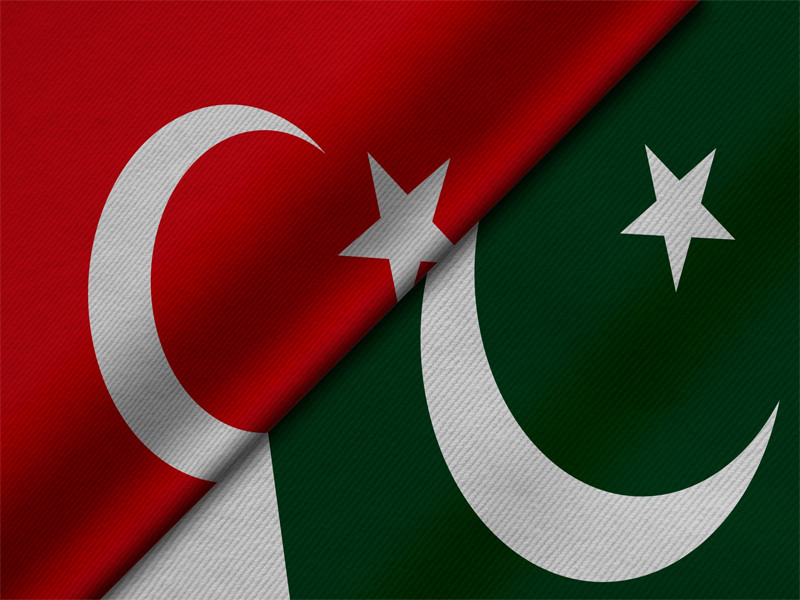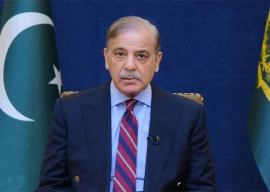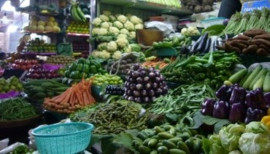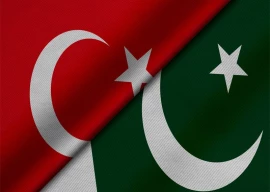
In an effort to further diversify strategic business planning with Turkiye, economic stalwarts have suggested promoting bilateral trade, addressing brain drain, boosting human capital and manufacturing capacity, and above all to reshaping national economic, trade and industrial landscapes.
During the latest visit of Turkish President Recep Tayyip Erdogan to Pakistan, the Pakistan-Turkiye High-Level Strategic Cooperation Council (HLSCC) was held on Feb 13, proposing to further enhance trade, investment, banking, finance, culture, tourism, energy, defence and agriculture.
They said both the countries should work together to further strengthen trade volumes, investments, joint ventures and industrialisation cooperation by improving trade and economic ties in the fields of textiles, garments, automobiles, IT, digitalisation, AI, hybrid agriculture, green energy, space and science, Islamic banking, higher education, joint defence production, health and tourism through rigorously implementing Preferential Trade Agreement (PTA) and Free Trade Agreement (FTA). Revival of freight cargos, cluster trading under Transports Internationaux Routiers (TIR) and involvement of private sectors should be the economic mantra of both sides, they said.
Pakistan exported products worth $335.3 million to Turkiye during fiscal year 2024, consisting of bed and table linen, toilet and kitchen linen, cotton yarn, woven cotton fabrics, rice, oilseeds, dates, figs, pineapples, citrus fruits, chemicals, articles of apparel and accessories of leather, paper, paperboard, carpets and more.
It imported products from Turkiye worth $491.3 million during fiscal year 2024, including cotton, cotton yarn, machinery, mechanical appliances, electric apparatus, leguminous vegetables, minerals, medicaments, surgical instruments and more.
Eminent economist and strategist Dr Mehmoodul Hassan Khan said the FTA drastically reduced tariffs on 261 items, promoting Pakistan's exports in textiles, garments, leather, agriculture commodities mainly rice, sports and surgical goods, and more. This definitely aims to increase bilateral trade to $5 billion, he said.
He noted that it is suggested that a well-planned and negotiated FTA can potentially increase bilateral trade from the current level of $584 million to S$5 billion. It is proposed Turkiye's non-tariff barriers and especially the liberal use of anti-dumping laws should be addressed in the FTA. The policy makers of Pakistan should consider signing a separate FTA for its manufacturing and IT sectors, opening Pakistan's domestic markets to Turkish imports.
"Brain drain has become a serious threat to our national talent, human capital and manufacturing capacity because of so many complex and complicated reasons pertaining to economic uncertainty and market stagnation. Since Turkiye has become a lucrative market for young professionals of IT, ICT, quantum technologies, big data sciences, digitalisation, artificial intelligence and computer sciences, most of the students from our universities have been destined towards it," he said.
However, a joint collaboration, joint production, joint job security and better diplomatic and political understanding has significantly reduced this trend, he said. Now, most Pakistani students are working in joint arms production units, drones manufacturing, humanoid apparatus and robotic sciences. Joint ventures in the KAAN 5th-generation fighter jet, Bayraktar TB3 armed drones and nine Akinci surveillance drones, T-129 ATAK helicopters, small navy ships, aerospace and automobiles would be an effective instrument to stop brain drain.
Prominent industrialist Muhammad Farooq Shaikhani said that trade between Pakistan and Turkiye holds immense potential, particularly in textiles, agriculture and technology.
Shaikhani said, "Hyderabad, being a hub for agro-based industries and textiles, can play a crucial role. We should enhance joint ventures in textile value addition, establish direct trade routes for agro-processed goods, and promote IT sector collaboration."




1719211536-0/BeFunky-collage-(81)1719211536-0-165x106.webp)



















COMMENTS
Comments are moderated and generally will be posted if they are on-topic and not abusive.
For more information, please see our Comments FAQ